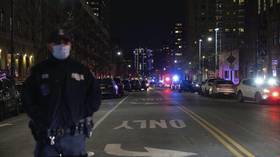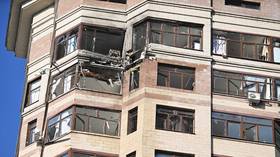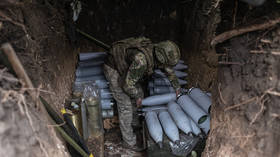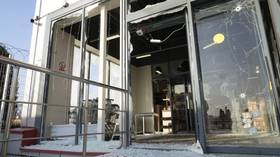New York City faces backlash after banning homeless from subways
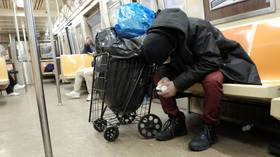
New York City Mayor Eric Adams has announced a systemwide crackdown on homeless people sheltering in the subway, earning the ire of homeless advocates and others who believe a heavy-handed approach won't solve the problem.
Announcing his plan to cleanse the city's subways of the homeless people who use them as a place to sleep, panhandle, or threaten other passengers during a Friday press conference, Adams declared, “The system is not meant to be housing. It's made to be transportation, and we have to return back to that basic philosophy.”
“The subway plan is a comprehensive civic strategy that will do more than deal with a temporary fix,” he continued. “You can't put a Band-Aid on a cancerous sore, that is not how you solve the problem. You must remove the cancer and start the healing process.”
The Coalition for the Homeless hit back at Adams’ plan, calling it “a repeat of failed strategies.” It was “sickening” that the mayor would deploy terms like “cancer” to refer to the homeless, spokeswoman Jacquelyn Simone said. “We are very concerned that [Adams' plan] overly relies on criminalization and policing strategies to address what is fundamentally a housing and mental health crisis.”
Passengers who sleep stretched across multiple seats, exhibit “aggressive behavior,” or otherwise create an “unsanitary environment” will be among those targeted for enforcement by the mayor's new teams, which include 1,000 police officers and up to 30 joint response teams aimed at steering the homeless toward help - whether it's a homeless shelter or a hospital for the mentally ill. Special teams will also be dispatched to end-of-the-line stations to clear the homeless out of the trains before they go back into service.
Adams says the enforcement, which is expected to start Monday, will not be geared toward maximizing arrests, promising not to “put handcuffs on” those who commit minor infractions and pointing out that the city also plans to expand mental and physical healthcare services for the homeless. Some $27.5 million has been set aside by the state for more psychiatric hospital beds, while $12 million will go toward 500 supportive housing beds.
The announcement of stricter enforcement comes in the wake of two people being pushed in front of subway trains in separate incidents over the span of a month. One, an Asian woman, was shoved onto the tracks in January by a man police later determined was a homeless ex-con and was killed. The other, a 62-year-old man, survived as the train was able to stop in time; his attacker has not been named, though the attack was believed to be random. Another person was stabbed in an unprovoked attack on a train last week. Subway crime in general has soared, with 276 cases of murder, robbery, rape, assault, burglary, and grand larceny in just the first two months of 2022 compared to 167 during the same period last year.
